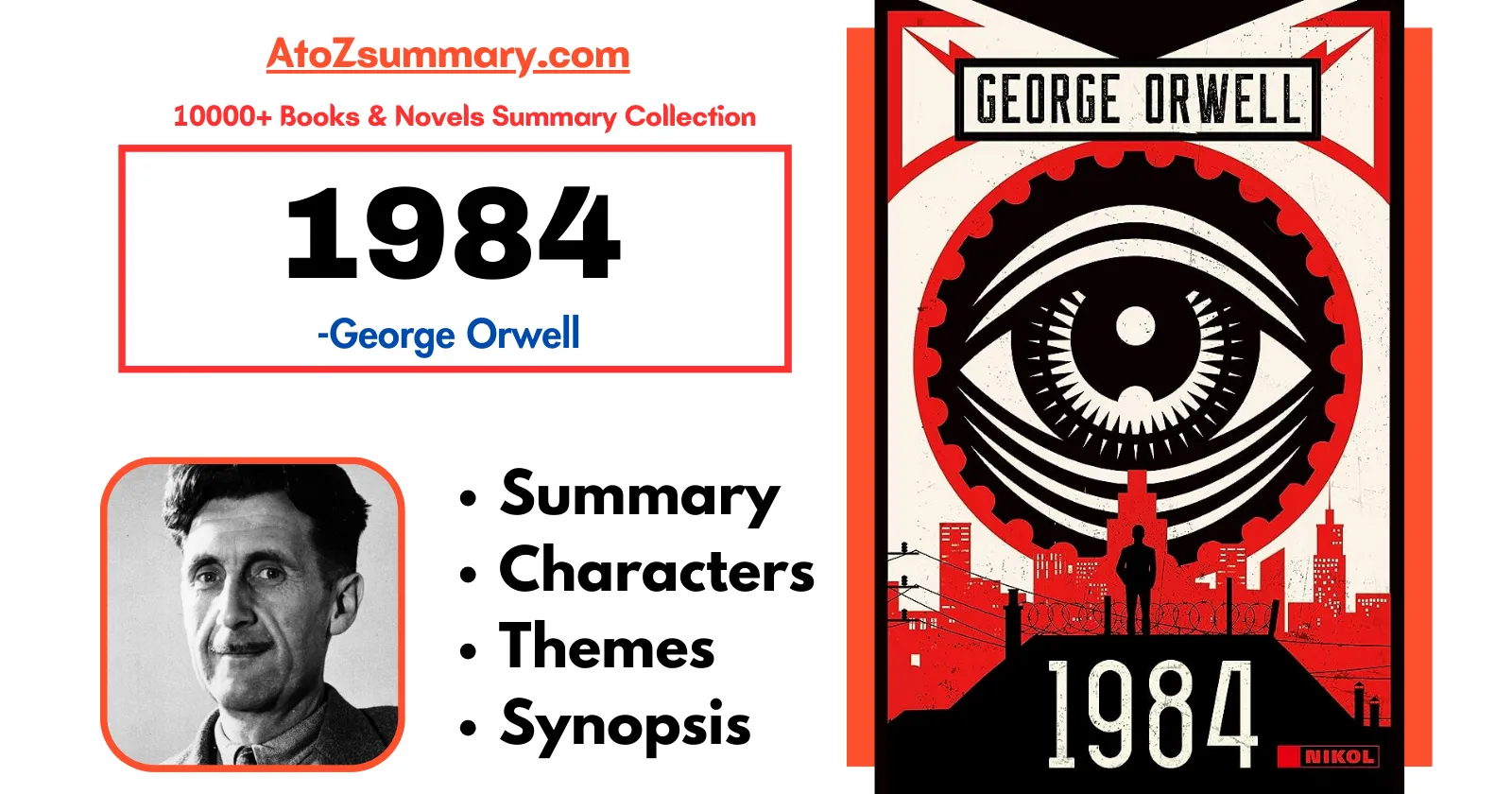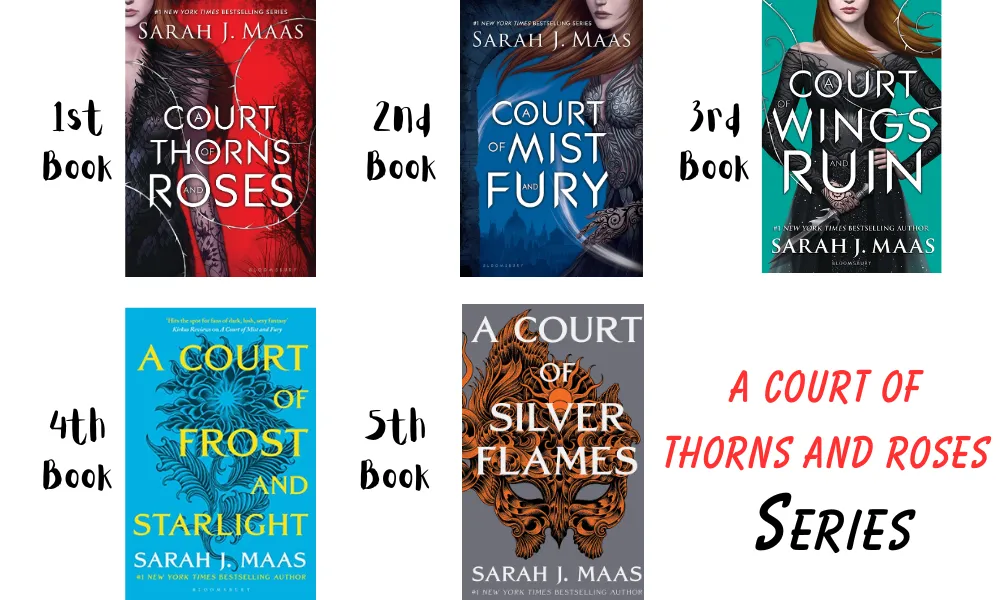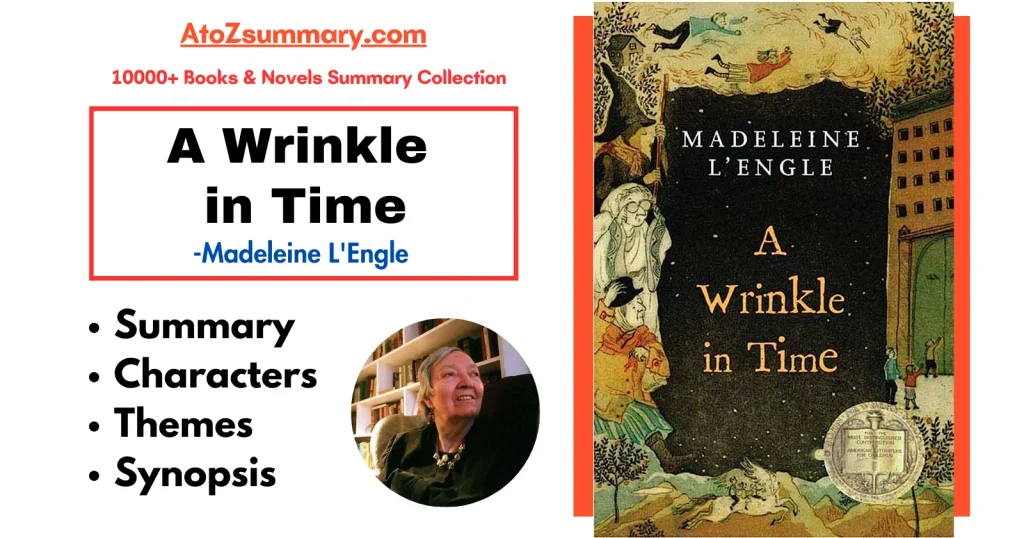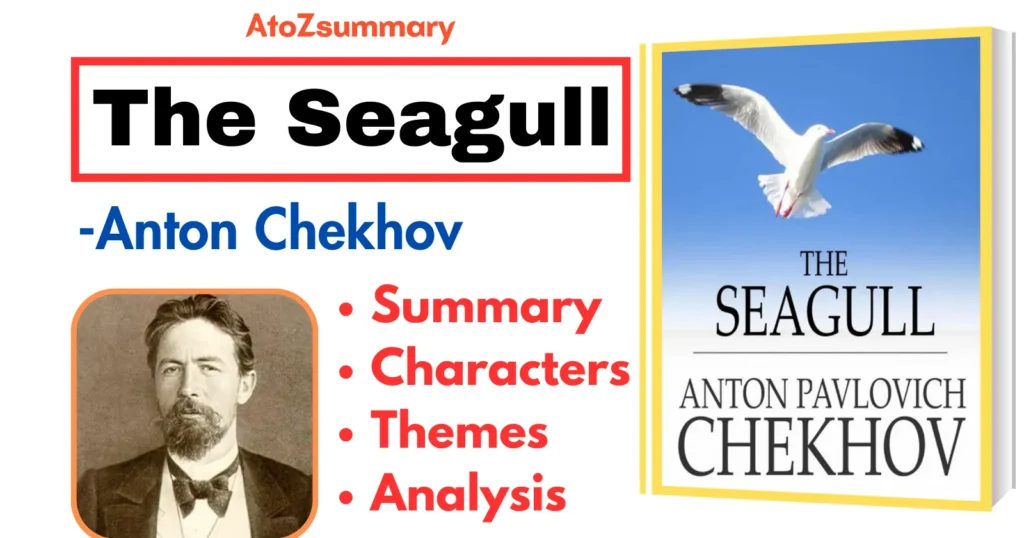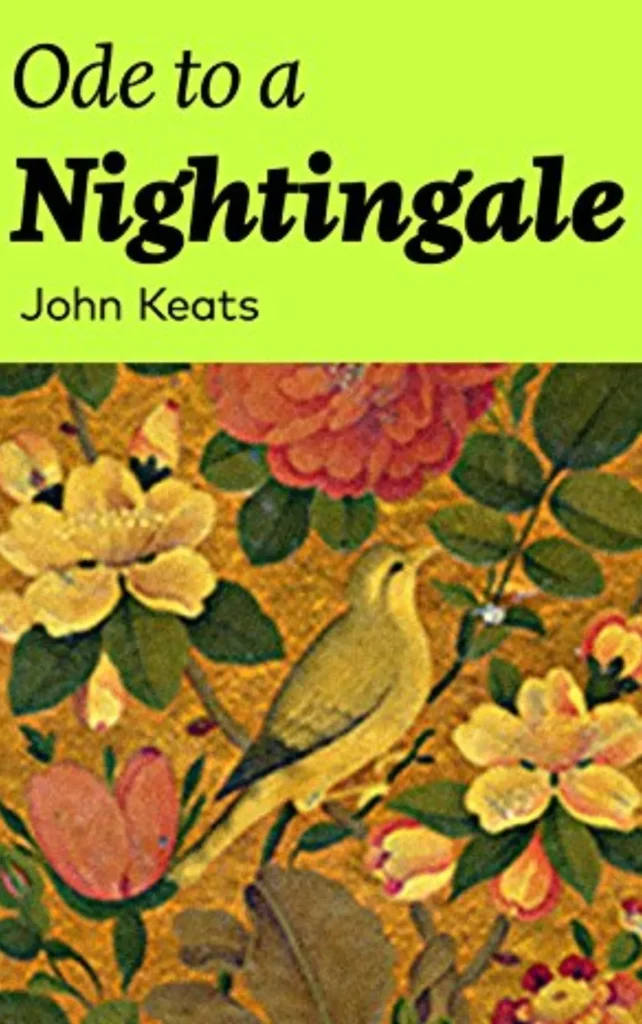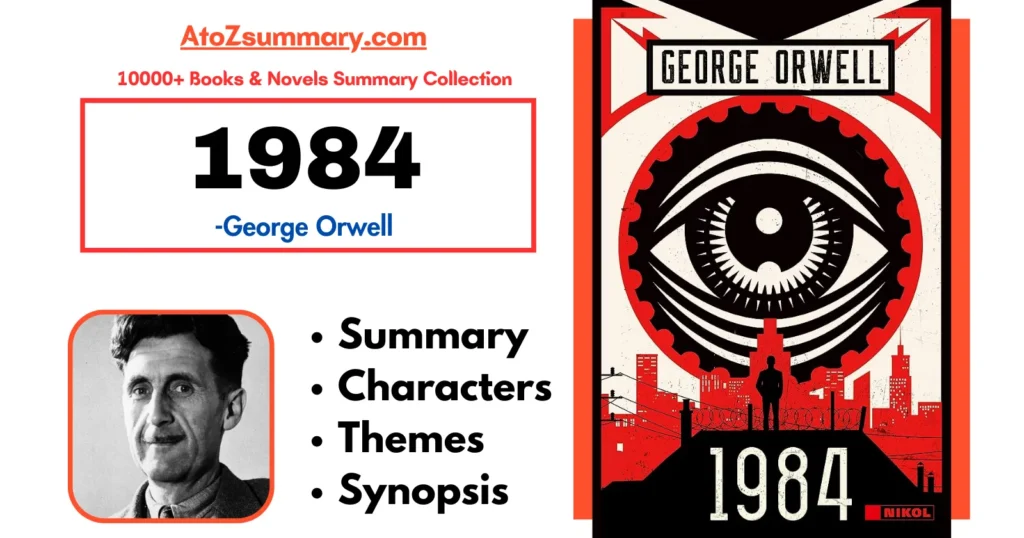
| Title | 1984 (Nineteen Eighty-Four) |
| Author | George Orwell |
| Published | June 8, 1949 |
| Publisher | Secker & Warburg |
| Language | Newspeak (fictional language) |
| No. of Pages | 328 pages |
| Genre | Dystopian fiction |
| Setting | A totalitarian society in the year 1984 |
Characters of 1984
The main characters of “1984” by George Orwell are:
- Winston Smith – The main guy who doesn’t like the government.
- Julia – Winston’s girlfriend and secret rebel.
- O’Brien – A powerful guy who tricks Winston.
- Big Brother – The scary leader everyone has to follow.
- Mr. Charrington – The old man who helps Winston and Julia.
Themes of 1984
The themes of “1984” by George Orwell are:
- Government Control – The government controls everything and everyone, taking away people’s freedom.
- Surveillance – The government watches people all the time, invading their privacy.
- Propaganda – The government spreads lies and manipulates the truth to control what people believe.
- Loss of Individuality – People lose their own thoughts and become what the government wants them to be.
- Fear and Oppression – The government uses fear and force to keep people obedient.
- Language Manipulation – The government changes language to control how people think and communicate.
Synopsis
1984 is a novel by George Orwell. It’s about a guy named Winston who lives in a world controlled by a super strict government.
They watch everything people do and say. Winston starts rebelling against the government and falls in love with a woman named Julia. But things get really bad, and they both get caught.
The novel shows how the government tries to control everything, even people’s thoughts. It’s a dark and scary story about the dangers of too much government power.
Watch Full Novel Summary of “1984” on YouTube
1984 Summary
Winston Smith is a low-ranking official in Oceania’s capital city of London. Winston is always being watched by the Party through telescreens, even within his own house. Winston can’t help but see Big Brother’s face wherever he turns. Even the people’s history and language are under the Party’s total control in Oceania. Currently, the Party is imposing the use of a made-up tongue dubbed Newspeak, which aims to suppress all terms associated with political uprising. It’s against the law to even have rebellious ideas. In actuality, this type of thoughtcrime is the worst kind of crime.
The persecution and strict control of the Party, which forbids free thought, sex, and any display of individuality, frustrates Winston as the narrative begins. Winston despises the party and has illegally acquired a diary to record his nefarious ideas. Winston believes that O’Brien, a prominent Party member, is a hidden member of the Brotherhood, the enigmatic, fabled group that seeks to topple the Party. Winston has also developed a fixation with this group.
Winston is employed by the Ministry of Truth, where he tampers with the course of history to suit the Party’s interests. He sees a stunning dark-haired coworker looking at him and fears that she is an informant who will report him for his thoughtcrime. The Party’s grip over history worries him; according to the Party, Oceania has always sided with Eastasia in a conflict with Eurasia, but Winston appears to remember a period when this was not the case. Winston disagrees with the Party’s assertion that Emmanuel Goldstein, the supposed head of the Brotherhood, is the most dangerous person alive. Winston spends his nights ambling around London’s most impoverished areas, where the “proles” dwell in squalor mostly unobserved by the Party.
Winston one day gets an “I love you” message from the girl with the dark hair. She introduces herself as Julia and they start a secret relationship while always on the alert for signs of Party surveillance. They eventually rent a space above the thrift shop where Winston purchased the diaries in the shantytown. This connection endures for a while. Winston, a fatalist who has known he was doomed since he penned his first journal entry, is certain that they would be discovered and punished sooner or later, while Julia is more realistic and upbeat. Winston becomes more and more enraged with the Party as his relationship with Julia deepens. He finally hears the news he’s been expecting to hear: O’Brien wants to meet him.
Julia and Winston go to O’Brien’s opulent residence. O’Brien has a life of luxury that Winston can only dream of since he is a member of the ruthless Inner Party (Winston is an Outer Party member). O’Brien tells Winston and Julia that he despises the Party just like them and that he fights against it as a Brotherhood member. He converts Winston and Julia to the Brotherhood and offers Winston a copy of the Brotherhood’s manifesto, Emmanuel Goldstein’s book. In the room above the shop, Winston reads Julia the book, which is a synthesis of several schools of class-based social theory from the 20th century. Soldiers suddenly storm in and capture them. It is discovered that Mr. Charrington, the store’s owner, has been a thought police member all along.
Winston discovers that O’Brien is also a Party spy after being separated from Julia and transported to a location known as the Ministry of Love. O’Brien just appeared to be a Brotherhood member to trick Winston into openly rebelling against the Party. Winston fights against O’Brien’s torture and indoctrination for months. Finally, O’Brien sends him to Room 101, the terrible place where anybody who disagrees with the Party goes to die. Winston is informed by O’Brien that he must now face his darkest phobia. As a result of Winston’s ongoing dreams about rats throughout the book, O’Brien now clamps a cage full of rats to Winston’s head and gets ready for the rats to devour his face. Winston loses his temper and begs O’Brien to harm Julia rather than him.
O’Brien had always pushed Winston to give up Julia. Winston is freed to the outside world with his soul crushed. After meeting Julia, he loses interest in her.
The ending of the novel shows Winston sitting at a café, gazing at a poster of Big Brother. He has come to love Big Brother and to accept the Party’s rule unconditionally. He has been completely dehumanized and reduced to a cog in the machine.
The ending of “1984” is a warning about the dangers of totalitarianism and the importance of individual freedom. It shows how easily a person can be manipulated and controlled by a powerful government. It is also a reminder that even the most strong-willed person can be broken if they are subjected to enough torture and brainwashing.
Famous quotes from “1984”
- “War is peace. Freedom is slavery. Ignorance is strength.”
- This is a slogan of the Party in the novel, illustrating the manipulation of language and thought in the dystopian society.
- “Big Brother is watching you.”
- This phrase is a constant reminder of the government’s surveillance and control over the citizens.
- “Freedom is the freedom to say that two plus two make four. If that is granted, all else follows.”
- Winston’s belief in the importance of objective truth and independent thinking.
- “Don’t let it happen. It depends on you.”
- A message of resistance and a call to action against the oppressive regime.
FAQs
What is 1984 about?
1984 is a book about a guy named Winston who lives in a bad government that watches everyone all the time.
Who is Big Brother in the book?
Big Brother is the leader of the government. People have to obey him, but they’re not even sure if he’s real.
What is the main problem in 1984?
The main problem is the government controls everything, even what people think and feel. It’s very hard to be free.
Are there any good characters in the book?
Winston and Julia are the main good characters. They try to break free from the government’s control.
Is 1984 a happy book?
No, it’s a sad and scary book because it shows a world without freedom and love.
Is 1984 a true story?
No, it’s not a true story, but it’s based on the author’s ideas about how power can be abused.
About the Author-George Orwell
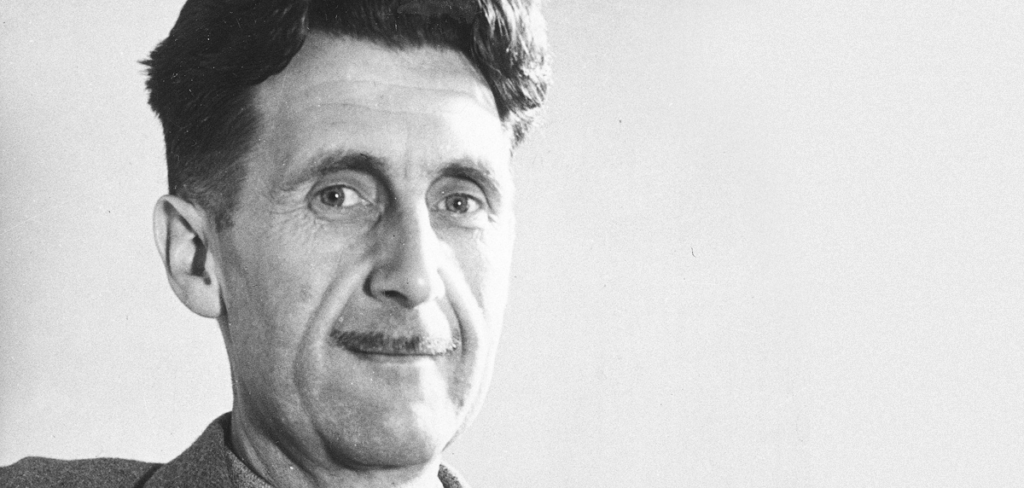
| Name | George Orwell |
| Full Name | Eric Arthur Blair |
| Date of Birth | June 25, 1903 |
| Date of Death | January 21, 1950 |
| Nationality | British |
| Literary Period | 20th Century |

